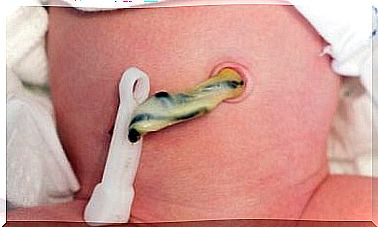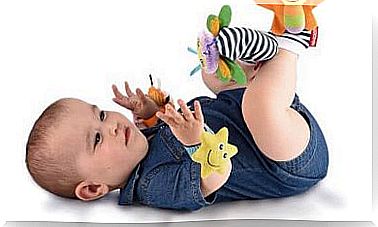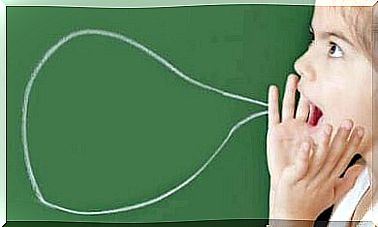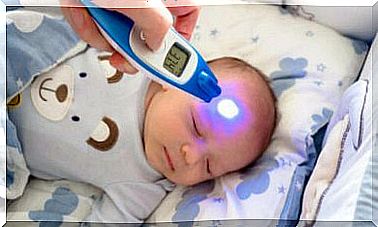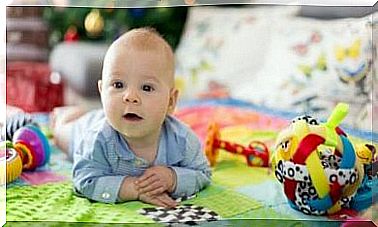7 Tips To Avoid Aggression In Children

There are many ways to avoid aggression in children. But the key to all of them is knowing what constitutes aggressive behavior and why parents should never lose control in the face of a tantrum.
Much more than a mere expression of anger, aggression in children can be an indication of hidden feelings such as frustration, fear or sadness. As parents , we should be aware of our children’s emotional needs and provide them with the healthy and supportive environment they need to grow up.
To determine if your child is aggressive, observe their behavior. For example, if your child is specifically looking for ways to harm other children or even their own parents, physically or mentally, this is aggression.
To identify patterns of aggressive behavior in children, keep in mind that any intentionally violent act is a sign of a problem that requires attention. These include kicking, scratching, biting, screaming, or using swear words.
There are many ways you can help a child manage their aggressive behavior. Here are seven tips to avoid aggression in children:
7 tips to channel aggression in children
1. Create an atmosphere of trust
Try to open up channels of communication with your child. Create an atmosphere of trust and respect in the home. This way , your child will have the confidence to express their feelings freely without fear of criticism or punishment.
This familiar and calming environment will allow your child to speak from their hearts about their feelings. Feeling truly understood and listening in the safety of your own home will help your child move beyond their aggressive behavior.
As your child begins to express their feelings, take the opportunity to explain that it is normal to feel angry or angry at times. Also point out that violence does nothing to solve problems.

2. Find the source of aggression in children
To get rid of aggression, start by observing how your little one is acting.
Tuesday The idea here is to identify the causes of your child’s aggressive behavior. You will be surprised what you discover. A common cause of aggression in children is low self-esteem.
You may also find out that your child reacts to the arrival of a little brother or sister. They feel unloved or insufficiently cared for and may be trying the wrong way to get your attention.
3. Act immediately when aggressive behavior occurs
If the child’s aggression affects those around them, especially other children, intervention is necessary. At this point you need to act and get in touch with your child. Otherwise, his aggressive behavior could lead to his comrades rejecting him in the future.
By helping your child channel their emotions in a healthy way, you can replace violence with more sensible behavior. Don’t underestimate your child: waiting will only make it harder to take the right action.
Act as soon as you see your child getting frustrated or angry. If you notice one of your children hitting or biting their sibling, other children, or even an adult, stop their wrongdoing immediately. Teach your child to understand that this behavior is of no help to them.
4. Find a way to make success tangible every day
We all know the power of words. A kind word can build trust, just as a cruel remark can destroy it. Imagine what an emotional intelligence education can mean for your children’s future prospects.
To combat aggression in children , it is better to emphasize positive values. Teach your child to express their feelings appropriately. Praise it for its accomplishments. Make it feel successful.
A good way to do this is to praise your child for the effort they go into and the results that result. When your child is making their bed in the morning, tell them what a good job they did.
Let them know that you appreciate their efforts. If you have to criticize something, do it a moment after you have praised his hard work. This way, your child will be more receptive to your feedback.
5. Be a role model for your child
Parents should never be aggressive towards their children. If you yell at your child, they will be less able to understand what you have to say.
Loud or harsh words will put children on the defensive. Worst of all, however, when children grow up in such an environment, they assume that this is the correct form of expression.
If children see their parents screaming instead of talking, and if every argument ends with someone banging their fist on the table or storming out, that is exactly what they will do in the future if they lose their patience.
For this reason, as a parent, it is important to practice what you preach in order to make your expectations of your child very clear.

6. Remain calm in the face of aggressive attacks
If your child is aggressive towards a family member or friend, cut them off and separate them from that person. Being alone a little will help the child reflect on what they have done.
If your child is violent towards you, their father or mother, leave them alone. Remember, this is an explosion of pent-up emotions. Arguing with him won’t help until he has calmed down.
Once the moment has passed, speak to the child and explain that their behavior was unacceptable. Give him time to think in his room. If corrective actions are needed, they should be put into practice as soon as possible.
7. If you need help, contact a specialist
If you’ve followed these recommendations and your child is still acting aggressively, it’s time to speak to a child therapist. This professional will be able to identify the cause of the aggressive behavior and help your family deal with it.





